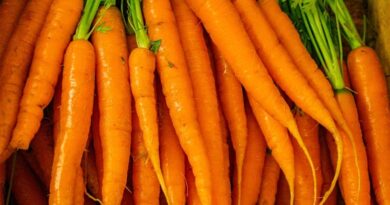
Sri Lanka Sets Size and Quality Criteria for Onion Purchases, Again Triggering Farmer Protests
31 October 2025, Colombo: Sri Lanka’s onion growers are voicing strong opposition to new government-imposed purchasing restrictions, arguing that the rules are impractical and disadvantage local farmers while favouring importers. The protests mark yet another instance of farmer unrest following earlier demonstrations against the government’s compulsory organic farming policy and restrictions on chemical fertilizer imports.
According to National Farmers’ Union Chairman Anuradha Thennakoon, the new standards for local onion procurement require that each bulb measure between 35 and 65 millimetres in diameter, with no more than 10% of the total stockfalling outside that range. Each kilogram must also contain roughly eight bulbs, along with other quality specifications.
“These criteria are not practical,” Thennakoon said. “About 150,000 metric tons of imported onions have already entered the country, and this seems to be a deliberate move to sell those stocks and protect importers. The same restrictions do not apply to imported onions.” He added that no previous administration had imposed such detailed grading standards on domestic produce.
Sri Lanka’s annual onion demand stands at about 280,000 metric tons, nearly 90% of which is met through imports. Domestic cultivation this season covered approximately 2,400 hectares across Dambulla, Galewela, Sigiriya, Anuradhapura, and Kekirawa, though yields have been below expectations. Farmers report that strict procurement standards and limited buying schemes are making it difficult to sell their produce.
Lanka Sathosa Ltd. Chairman Samitha Perera stated that the agency purchases only onions meeting resale quality standards. Under the current system, Sathosa buys local onions at 140 Sri Lankan rupees per kilogram (about US$0.47), but each farmer is restricted to selling a maximum of 2,000 kilograms.
Growers in Matale, Anuradhapura, and Polonnaruwa say the restrictions have left them unable to market their harvest at viable prices, with some reporting onions rotting in storage due to unsold stocks.
Thennakoon warned that the new framework adds further strain to already struggling farmers. “Many growers have become helpless due to their inability to sell their harvest at a fair price,” he said.
The government has defended the measures as part of its effort to ensure quality and uniformity in the domestic market. However, farmer organizations argue that the criteria create additional barriers for local producers competing with imports — a situation reminiscent of the economic and agricultural disruption caused by the earlier organic farming mandate and fertilizer import ban.
📢 If You’re in Agriculture, Make Sure the Right People Hear Your Story.
From product launches to strategic announcements, Global Agriculture offers unmatched visibility across international agri-business markets. Connect with us at pr@global-agriculture.com to explore editorial and advertising opportunities that reach the right audience, worldwide.






